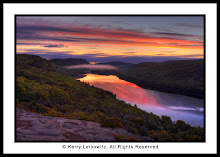When was it exactly that we forgot how revitalizing it can be just to simply, fundamentally, have hope? Since when has “this is the best of the worst” become the motto to live by? Why is it so hard for us to imagine that perhaps the way we are living that leads to such a high murder and suicide rate may possibly, maybe, be the wrong way? Other cultures have been studied throughout history, cultures that are descendants of the same distant ancestors as those living in western society. Many of these groups of people have been untouched, or nearly untouched, by “civilized man”. Is it so hard to imagine that perhaps they are happier than we? They live in a way that until 2,000 years ago our ancestors also lived, and always had lived. They live in the way that humanity evolved to live. When we live against evolution destroying rather than respecting, how can we expect anything other than destruction to greet us in return?
We leave our children alone in rooms to cry themselves to sleep and then wonder why it is that they have issues trusting later in life. We pass from job to job in a constant search for happiness, and never find it. We take two days out of seven to actually live and end up fretting about the other five for half of the weekend. We can go for months, and for some, perhaps years without feeling a cool rain on our faces. Constantly hitting the refresh button we check the weather in our windowless offices feeling a longing we cannot define—a hopelessness that seems out of place in a nine to five society. We pop Vitamin D supplements because we are never outside enough to absorb it naturally. We avoid human interaction by emailing and doing everything possible online.
Some of us realize that life should not be a monotony of meaningless days occasionally punctured by actual living. Some of us rebel against the norm and read books about true life while surrounded by the cubicle walls that smother. Some of us wonder if the life of those untouched by our kinfolk is possible for us. Some of us attempt to spread the word that happiness is but a few simplifications away. Yet few listen and most are repulsed. To admit one is wrong is a long undertaking for an individual, but to admit that an entire society is mistaken could take centuries. The problem? It will be too late by the time western society admits their errors, if ever they do.
So perhaps a reflection is in order. Perhaps someone needs to tell those brainwashed by typical Christianity that humanity is far from inherently evil. Humans are just very talented at teaching their flaws to offspring at a speedy rate. How many nights alone in a bassinet does it take a child to realize that only with constant sobbing will human interaction result? Children are born knowing more about the intricacies of life than the average western adult. They need no books to know how to behave, no television to shape their vision of themselves. They are pure. It is their upbringing that adds the sin so many faiths claim is “original”.
So what now? What action or vision could re-teach humanity what they knew as infants but forgot as children? How does one go about teaching the art of hope? Perhaps this economic downturn will educate westerners of the fact that understanding arms can be just as comforting as a cushiony paycheck. Perhaps the giggle of a toddler as they play peek-a-boo will bring back the inner desire to pick them up and run about out doors. Or perhaps even with the challenge of limited means our society will find its own way to squelch the urge to return to a simpler and happier way of life.
Maybe it is too late for a society when internet is seen as a need and companionship as merely a desire.
